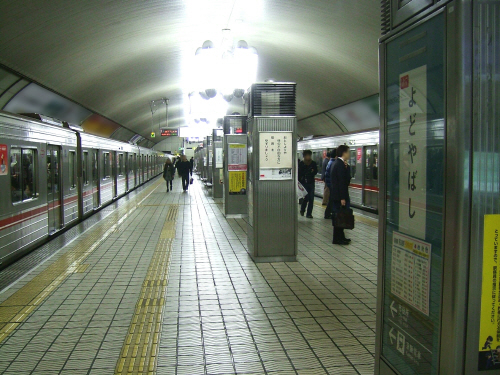Japanese railway says ‘too many foreigners’ are to blame for inconvenience
By Bak Se-hwanPublished : Oct. 11, 2016 - 15:05
An announcement on a Japanese railway line has rekindled debate about discrimination against foreigners, following a recent case of a sushi restaurant accused of serving excessive amounts of wasabi to Korean customers in Osaka.
According to Japan’s Kyodo news agency Monday, a Nankai Electric Railway conductor made an inappropriate comment about foreign passengers during an announcement aired on a train bound for Kansai International Airport Station.
During the announcement, the conductor said, “We are sorry for any inconvenience caused by having too many foreigners on board.”
According to Japan’s Kyodo news agency Monday, a Nankai Electric Railway conductor made an inappropriate comment about foreign passengers during an announcement aired on a train bound for Kansai International Airport Station.
During the announcement, the conductor said, “We are sorry for any inconvenience caused by having too many foreigners on board.”

Nankai Electric Railway operates local trains between Kansai airport and Nanba, many of which carry foreign tourists headed to Osaka.
Public outcry spread on social media after a Japanese passenger who heard the announcement on the train brought the issue up to station officials to find out if such words complied with the railway company’s regulations.
The conductor later apologized, saying, “The announcement was to prevent trouble between the Japanese and foreign passengers.” He added that he “did not mean to offend foreign travelers,” the Japanese news outlet reported.
Last week, a group of Korean tourists had posted on social media that an Ichibazushi outlet in Osaka appeared to have added twice the normal amount of wasabi to their sushi orders, an act that came to be described as “Wasabi Terror.”

In April, an employee of a bus company in Osaka wrote “Kim Chon (キム チョン)” on the bus ticket of a Korean tourist surnamed Kim. “Chon” is an insulting term used to describe Koreans during Japan’s 35 years of colonization of the country.
By Bak Se-hwan (sh@heraldcorp.com)







![[KH Explains] Hyundai's full hybrid edge to pay off amid slow transition to pure EVs](http://res.heraldm.com/phpwas/restmb_idxmake.php?idx=644&simg=/content/image/2024/04/18/20240418050645_0.jpg&u=20240419100350)






![[From the Scene] Monks, Buddhists hail return of remains of Buddhas](http://res.heraldm.com/phpwas/restmb_idxmake.php?idx=652&simg=/content/image/2024/04/19/20240419050617_0.jpg&u=20240419175937)

![[KH Explains] Hyundai's full hybrid edge to pay off amid slow transition to pure EVs](http://res.heraldm.com/phpwas/restmb_idxmake.php?idx=652&simg=/content/image/2024/04/18/20240418050645_0.jpg&u=20240419100350)

![[Today’s K-pop] Illit drops debut single remix](http://res.heraldm.com/phpwas/restmb_idxmake.php?idx=642&simg=/content/image/2024/04/19/20240419050612_0.jpg&u=)